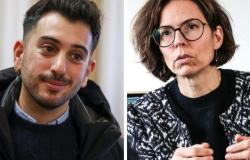Alzheimer’s disease affects memory, an essential mental faculty that allows for “know-how” and “being able to do.” However, certain resources are preserved at the beginning of the pathology: functional networks associated with motor skills remain intact at a moderate stage of the disease.
The project is based on the idea that learning on the move makes learning more resistant to forgetting. This study will ask people at the start of their illness to watch videos showing everyday actions, such as drinking a glass of water, hanging out their laundry, or taking medication.
Faced with these videos, people will have three options:
- Just watch the videos
- Imagine yourself carrying out the actions shown
- Perform the actions shown
It is expected that the actions carried out are better remembered than others. If this is demonstrated, it will be possible to say that, for tasks essential to independent living, learning can be promoted and improved by mobilizing the body.
The jury highlighted the interest of this project which emphasizes learning through the body and gestures. The subject is meaningful and has great potential for practical applications, both in institutions and at home.
The grant of 35,000 euros received by the Psychology and NeuroCognition Laboratory (LPNC) of the University of Grenoble will make it possible to finalize the study for publication, complete the thesis work and disseminate the intervention at home.
Since its creation, research in the human and social sciences (SHS) and public health has been part of the Foundation’s DNA. More than 100 young researchers have been supported through prizes, scholarships and endowments, for a total amount of more than one million euros.
« Research in the human and social sciences is the poor relation of research even though it is essential for improving knowledge of Alzheimer’s disease and the daily lives of sick people and their loved ones. The Foundation wishes to encourage young researchers to engage in doctoral work related to Alzheimer’s disease and to promote their research » concludes, for her part, Christine Tabuenca, general director of the Médéric Alzheimer Foundation.
Health





